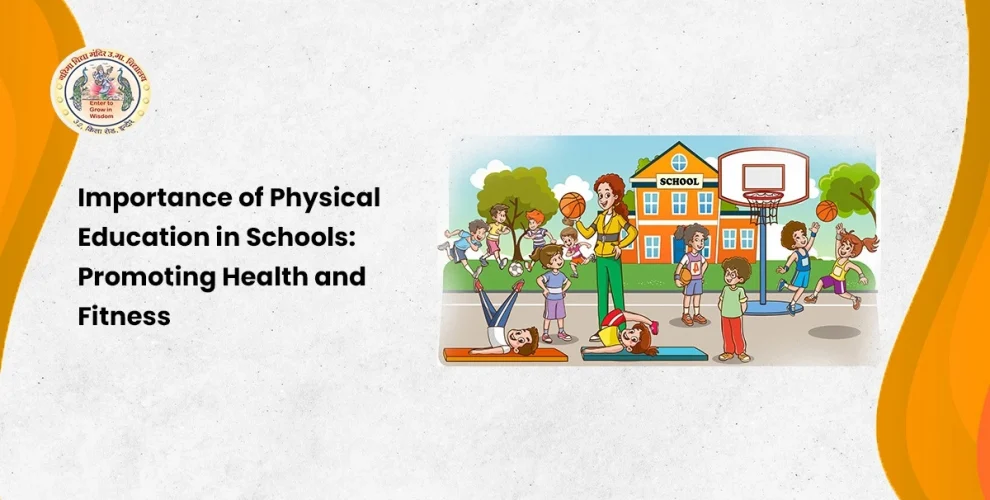Physical Education (PE) is more than just running around and playing games at school. It’s an important part of learning that helps you stay fit and healthy. In a world where many people spend a lot of time sitting, PE gives you a chance to move, exercise, and learn how to be active.
PE classes are designed to help you get better at sports, improve your strength, and learn how to stay healthy. Besides physical benefits, PE also teaches you important life skills like working with others, setting goals, and being disciplined. In this blog, we’ll look at why PE is so important and how it helps you grow not just physically, but also mentally and socially.
Importance of Physical Education in Schools
1. Keeps You Healthy
Physical Education helps you stay active by involving you in various sports and exercises. This regular physical activity helps you maintain a healthy weight, strengthens your muscles, and improves your overall fitness. It also reduces the risk of health problems such as obesity, diabetes, and heart disease. By staying active in PE, you develop healthy habits that can last a lifetime.
2. Makes You Feel Good
Exercise is known to boost your mood and reduce stress. When you exercise, your brain releases chemicals called endorphins that make you feel happy and relaxed. Physical Education provides a fun way to relieve stress from schoolwork and other pressures, helping you feel better both physically and emotionally. It’s a great way to boost your mental well-being and improve your overall mood.
3. Helps You Make Friends
Physical Education often involves team sports and group activities that require you to work together with others. These activities are perfect for meeting new people and making friends. Through team sports, you learn how to communicate, collaborate, and support each other, which helps build strong friendships and a sense of community. These social skills are important for building positive relationships both in and out of school.
4. Improves Your School Performance
Being active has a positive impact on your brain, improving your focus and concentration. Studies have shown that regular physical activity can enhance cognitive function, which helps you perform better in class. By participating in Physical Education, you’re likely to experience better attention in lessons and improved academic performance. Exercise also boosts your energy levels, making it easier to tackle school assignments and activities.
5. Encourages a Healthy Lifestyle
Physical Education introduces you to a variety of sports and physical activities, helping you discover what you enjoy. This exposure encourages you to stay active even outside of school. By finding activities you like, you’re more likely to continue exercising regularly and make it a part of your daily routine. This helps you develop a lifelong habit of staying active and maintaining a healthy lifestyle.
6. Teaches Important Life Skills
In Physical Education, you set personal goals, whether it’s improving your skills in a sport or achieving a fitness target. This helps you develop discipline, perseverance, and goal-setting skills. Learning to work hard and achieve your goals in PE translates to other areas of your life, including academics and personal pursuits. These skills are crucial for your success in school and beyond.
7. Encourages Healthy Competition
Sports and physical activities in PE teach you about healthy competition. Learning to compete fairly and handle both wins and losses gracefully is an important life lesson. This experience helps you develop resilience and a positive attitude towards challenges, preparing you for various situations in life.
8. Provides a Break from Academics
PE offers a welcome break from the academic rigours of school. Engaging in physical activities provides a mental and physical reset, helping you return to your studies refreshed and more focused. This balance between academics and physical activity contributes to a well-rounded educational experience.
9. Inspires Lifelong Fitness
PE introduces you to a variety of physical activities and sports, helping you find interests that you may continue beyond school. This early exposure encourages you to maintain an active lifestyle and pursue fitness as a lifelong habit, benefiting your health and well-being throughout your life.
10. Building a Strong School Community
Physical education helps students stay fit and also brings them together, creating a strong school community. To learn more about how school events and festivals build this sense of community, check out our blog on The Role of Festivals in Building a Strong School Community.
To Sum up
Physical Education plays a vital role in schools by promoting health and fitness among students. It goes beyond physical activity, contributing significantly to mental well-being, social skills, and overall academic success. Through engaging in regular exercise, students not only improve their physical health but also enhance their concentration, build teamwork skills, and boost their self-confidence.
Physical Education classes offer a unique opportunity for students to discover their interests in various sports and activities, fostering a lifelong appreciation for fitness. By integrating enjoyable and diverse physical activities into the school curriculum, we can ensure that students develop healthy habits and a positive attitude towards physical health.
People also ask
Q1. Why is physical fitness important in students’ lives?
Ans: Physical fitness is crucial for students as it enhances their overall health, improves concentration, and boosts academic performance. Regular exercise helps build strong muscles and bones, supports mental health, and fosters social skills through team activities.
Q2. What are the benefits of participating in physical activity?
Ans: Participating in physical activity offers numerous benefits, including improved cardiovascular health, better muscle strength, increased flexibility, and enhanced mood. It also helps in managing weight, reducing stress, and building lifelong healthy habits.
Q3. How is physical fitness related to good health?
Ans: Physical fitness is closely linked to good health by reducing the risk of chronic diseases such as diabetes and heart disease. Regular exercise supports a strong immune system, improves sleep quality, and contributes to a balanced mental and emotional state.



Leave a Reply